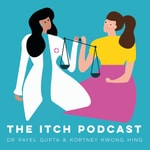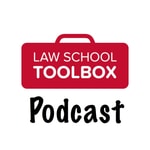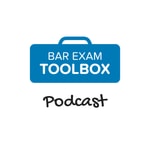The Itch: Allergies, Asthma, Eczema & Immunology – Détails, épisodes et analyse
Détails du podcast
Informations techniques et générales issues du flux RSS du podcast.

The Itch: Allergies, Asthma, Eczema & Immunology
The Itch: Allergies, Asthma & Immunology
Fréquence : 1 épisode/19j. Total Éps: 122

Classements récents
Dernières positions dans les classements Apple Podcasts et Spotify.
Apple Podcasts
🇬🇧 Grande Bretagne - medicine
21/07/2025#66🇨🇦 Canada - medicine
09/07/2025#92🇨🇦 Canada - medicine
25/05/2025#78🇨🇦 Canada - medicine
24/05/2025#50🇨🇦 Canada - medicine
12/05/2025#76🇨🇦 Canada - medicine
23/04/2025#97🇬🇧 Grande Bretagne - medicine
21/04/2025#79🇬🇧 Grande Bretagne - medicine
17/04/2025#61🇨🇦 Canada - medicine
04/04/2025#81🇫🇷 France - medicine
10/02/2025#76
Spotify
Aucun classement récent disponible
Liens partagés entre épisodes et podcasts
Liens présents dans les descriptions d'épisodes et autres podcasts les utilisant également.
See all- https://insighttimer.com/
325 partages
- https://wakingup.com/
54 partages
- https://www.intuitiveeating.org
36 partages
- https://www.instagram.com/rubin_allergy
8 partages
- https://www.instagram.com/allergykidsdoc
8 partages
- https://www.instagram.com/shivaika
6 partages
Qualité et score du flux RSS
Évaluation technique de la qualité et de la structure du flux RSS.
See allScore global : 52%
Historique des publications
Répartition mensuelle des publications d'épisodes au fil des années.
#82 -The Future of Chronic Spontaneous Urticaria Treatments (Dupilumab, Remibrutinib, and Barzolvolimab.)
Épisode 91
jeudi 22 août 2024 • Durée 29:14
There’s never been a better time to be a CSU patient, with cutting-edge therapies and revolutionary treatments just around the corner. As research accelerates, new and promising options that could significantly improve the quality of life for those living with Chronic Spontaneous Urticaria are coming to market.
In this episode, Dr. Matthew Zirwas joins us to discuss the latest advancements in treating CSU, offering invaluable insights into both current and emerging treatment options. With his extensive experience and patient-centred approach, Dr. Zirwas breaks down the complexities of CSU and highlights how these new therapies can make a real difference.
This podcast was made in partnership with Allergy & Asthma Network. We thank Novartis for sponsoring this podcast.
What We Cover in Our Episode About Emerging Chronic Spontaneous Urticaria Treatments:- How Dr. Zirwas explains CSU to his patients: Discover the patient-friendly explanations that help demystify CSU and empower patients to learn more about their disease.
- When to start with a biologic: Learn about the decision-making process for initiating biologic therapies like Xolair (omalizumab) and when they are most appropriate.
- The new medications coming to market: Get an overview of the latest advancements, including:
- Dupixent (dupilumab): A biologic administered via injection that targets key pathways in the inflammatory response.
- Remibrutinib: A BTK (Bruton tyrosine kinase) inhibitor available as a pill that blocks a crucial enzyme in mast cell activation.
- Barzolvolimab: A promising biologic that targets the C KIT receptor on mast cells to reduce their number.
- Shared decision-making with these medications: Explore strategies for choosing the most appropriate treatment in a rapidly evolving therapeutic landscape.
- Research into the underlying cause of CSU: What’s happening on the research front to uncover the root causes of CSU.
Dr. Matthew Zirwas, MD, is a board-certified dermatologist and a nationally recognized expert in allergy patch testing, psoriasis, and eczema. He founded the Bexley Dermatology Research Clinic, offering patients access to the latest treatment options before they are widely available. Dr. Zirwas also serves as a dermatologic advisor for several companies, including ALL Laundry Detergent and Cerave, and contributes to Women’s Health Magazine. Learn more about Dr. Zirwas.
More resources about chronic spontaneous urticaria:
- Chronic Urticaria Management, Resources & Glossary of Terms: https://allergyasthmanetwork.org/health-a-z/chronic-urticaria/management-and-resources/
- What is Chronic Urticaria: https://allergyasthmanetwork.org/health-a-z/chronic-urticaria/
- More information about Omalizumab (Xolair): https://www.xolair.com/chronic-spontaneous-urticaria.html
Disclaimer: This podcast is for informational purposes only and does not substitute professional medical advice. Always consult with your healthcare provider for any medical concerns.
#81 - Why asthma attacks rise in September peak week
Épisode 90
jeudi 15 août 2024 • Durée 34:03
Did you know that the month of September sees a drastic rise in asthma attacks and hospitalizations?
Dr. G and Kortney delve into the challenges that asthmatics face during the fall season, also known as "peak week." Despite what the name suggests, asthma cases start to rise in the second week of September and continue into early October before returning to normal levels.
We begin by defining asthma and then explore why asthma attacks are more prevalent in September. We discuss the role of germs and viruses, indoor and outdoor allergens, and cold weather in exacerbating asthma symptoms. Dr. G also shares tips on how to lessen your exposure to these triggers. Additionally, we cover the importance of having an asthma action plan and the significance of well-controlled asthma.
Dr. G also discusses the financial aspects of asthma management and offers advice on how to discuss this with your doctor.
>>>> Listener survey: https://forms.gle/6Pb2PGq6nuVReasZ6
What we cover in our episode about the rise in September asthma attacks- Why September is Peak Asthma Season: Explore why asthma attacks increase in the fall and what you can do to prepare.
- The Role of Germs and Viruses in Asthma: Understand how illnesses can trigger asthma and learn tips for staying healthy.
- Indoor and Outdoor Allergens: Discover how common allergens like dust mites, pet dander, ragweed, and mold can affect asthma, and what you can do to limit exposure.
- Preparing for Peak Week: Essential steps to take before asthma season hits, including scheduling doctor visits and creating an action plan.
- Asthma Management Tips for Different Age Groups: Advice for school-aged children and elderly patients to ensure they receive the best care.
More resources about asthma peak week:
- Asthma and Allergy Forecast: pollen and allergen count https://allergyasthmanetwork.org/weather/
- 10 Ways to Stay Healthy During the September Asthma Peak Week https://allergyasthmanetwork.org/news/10-ways-to-stay-healthy-during-september-asthma-peak/
- Seasonal allergies: https://allergyasthmanetwork.org/news/seasonal-allergies/
- Asthma attack: https://allergyasthmanetwork.org/what-is-asthma/asthma-attack/
- What if I Can’t Afford My Asthma Medication? https://allergyasthmanetwork.org/what-is-asthma/what-if-i-cant-afford-my-asthma-medication/
- Asthma Management and Control (2:2:1 Rule) https://allergyasthmanetwork.org/what-is-asthma/asthma-management-and-control/
- AirQ https://www.airqscore.com/en/main-page.html
- ACT Test https://www.asthmacontroltest.com/welcome/
We want to thank AstraZeneca for sponsoring this episode.
Disclaimer: This podcast is for informational purposes only and does not substitute professional medical advice. Always consult with your healthcare provider for any medical concerns.
#72 - Mast Cell Disease, the Hematologist & New Treatments on the Horizon
Épisode 81
mercredi 17 avril 2024 • Durée 33:10
Why talk to a hematologist about mast cell disease and systemic mastocytosis treatment?
Dr. Douglas Tremblay, a leading hematologist, joins Dr. G and Kortney to discuss the role of a hematologist-oncologist in diagnosing and treating mastocytosis. We discuss bone marrow's vital role in diagnosing and treating systemic mastocytosis.
Dr. Tremblay discusses the latest KIT inhibitors, a promising group of medications, and explains the difference between indolent and advanced systemic mastocytosis. He clarifies how KIT inhibitors work and emphasizes the importance of managing side effects. Finally, Dr. Tremblay provides insights into the future of KIT inhibitor approval and explores the possibility of participating in a clinical trial for Bezulastinib.
What we cover in this episode about treating systemic mastocytosis:
- What is a hematologist looking at with mast cell disease patients?
- Mast cell diseases and the role of bone marrow
- Bone marrow biopsy for systemic mastocytosis
- What is a bone marrow biopsy?
- Information bone marrow biopsy provides for diagnosis
- KIT mutation
- KIT mutation testing in bone marrow and blood (digital droplet PCR)
- Indolent Mastocytosis versus Advanced Mastocytosis
- Current research for treating mast cell disease
- How KIT inhibitors work
- Do KIT inhibitors weaken the immune system?
- KIT Inhibitors discussed in this episode:
- Avapritinib
- Bezulastinib
- Elenestinib
- Are KIT inhibitors a cure for mast cell disease?
- Determining the tolerance for side effects of medications when researching and adding new medicines for diseases
- The meaning of ‘NIB’ in the medication names
- The timeline for the new KIT inhibitors approval
- The type of patient that can participate in the clinical trials for Bezulastinib
-
Dr. Tremblay: https://profiles.mountsinai.org/douglas-a-tremblay
-
Dr. Tremblay’s email: douglas.tremblay@mssm.edu
-
-
Mast Cell Disease Overview: https://allergyasthmanetwork.org/health-a-z/mast-cell-diseases/
-
What is Anaphylaxis? https://allergyasthmanetwork.org/anaphylaxis/
-
What is Epinephrine? https://allergyasthmanetwork.org/anaphylaxis/what-is-epinephrine/
-
The Mast Cell Disease Society: https://tmsforacure.org/
-
Current studies enrolling patients: https://tmsforacure.org/clinical-trials/
#71 - Living with systemic mastocytosis
Épisode 80
mercredi 20 mars 2024 • Durée 30:30
What is it like when an unpredictable disease like systemic mastocytosis forces you to change the trajectory of your life?
As we continue to unpack mast cell disease, Dr. G and Kortney wanted to get the patient's perspective on living with such a complex disease. Tammie joins the podcast to discuss her journey battling mastocytosis, a rare condition affecting mast cells in the body.
If you ever feel alone on your chronic health journey, know you aren’t! Tammie's resilience and wisdom serve as a beacon of hope. We hope this inspires you to approach your health journey with determination and a sense of community.
What we cover in this episode:
-
Tammie’s mastocytosis journey
-
The challenges of not getting a proper diagnosis
-
The pros and cons of being able to google medical conditions
-
What do to when a doctor does not want to take you on as a patient
-
How Tammie separates the disease from her life
-
How do you navigate work with a chronic disease?
-
Working with a mental health team
-
How do you ask your family/friends for help
-
Patient's relationship with their healthcare team
-
Pros and cons of an online community for chronic disease and the importance of a real-life community
Connect with Tammie online:
- TikTok https://www.tiktok.com/@rachelllargentphillips
- Instagram https://www.instagram.com/tammie_rachell/
Resources about mast cell disease:
-
Mast Cell Disease Overview: https://allergyasthmanetwork.org/health-a-z/mast-cell-diseases/
-
What is Anaphylaxis? https://allergyasthmanetwork.org/anaphylaxis/
-
What is Epinephrine? https://allergyasthmanetwork.org/anaphylaxis/what-is-epinephrine/
-
The Mast Cell Disease Society: https://tmsforacure.org/
#70 - How do low histamine diets and stress impact mast cell disease?
Épisode 79
mercredi 13 mars 2024 • Durée 15:08
Dr. Milner joins us again to discuss two hot topics in managing mast cell disease. We start by demystifying the low histamine diet and sharing when appropriate. The answer may be different from what you expect or want to hear. We also talk about stress, a topic we are learning impacts so many chronic diseases, especially those related to mast cells. Stress can worsen symptoms, and in this episode, both doctors emphasize the importance of stress management techniques.
What we cover in this episode about low histamine diet and stress management
- Why go on a low histamine diet?
- What is histamine intolerance?
- How well do low histamine diets work for mast cell disease?
- The impact of stress on mast cell disease
- Stresses impact on the gut
- Stress management is integral in mast cell disease treatment
More resources about mast cell disease:
- Mast Cell Disease Overview: https://allergyasthmanetwork.org/health-a-z/mast-cell-diseases/
- What is Anaphylaxis? https://allergyasthmanetwork.org/anaphylaxis/
- What is Epinephrine? https://allergyasthmanetwork.org/anaphylaxis/what-is-epinephrine/
- The Mast Cell Disease Society: https://tmsforacure.org/
#69 - How are Mast Cell Diseases Treated?
Épisode 78
mercredi 6 mars 2024 • Durée 21:52
Where do you begin with mast cell disease treatment when there is such variation among patients?
Dr. Milner is back with us to discuss the difficulties in treating mast cell activation syndrome and mastocytosis. We will discuss the different approaches to treating mast cell disease and the medications used for mastocytosis treatment. Since no single treatment plan works for everyone, we will explore multiple strategies that can be helpful in managing this condition.
A note: when you hear MCAS mentioned, it stands for Mast Cell Activation Syndrome.
What we cover in our episode about treating mast cell diseases:-
What are the steps taken to treat mast cell diseases?
-
Histamine blockers: antihistamines for mast cell disease and H2 blockers
-
Mast cell stabilizers: Cromolyn and Ketotifen
-
Xolair
-
Other medications that have been used but not recommended: aspirin, steroids, Singulair
-
Epinephrine and anaphylaxis
-
Tyrosine kinase inhibitors (TKI) for Mastocytosis: Avapritinib, Midostaurin
-
Safety concerns and side effects of Tyrosine kinase inhibitors
-
Multidisciplinary approach to managing mast cell disease
Joshua Milner, MD, is a renowned leader in discovering and understanding genetic diseases leading to allergic symptoms, including Hereditary Alpha Tryptasemia Syndrome, PLAID, PGM3 deficiency, ERBIN mutation, and others. With a background in biology from MIT and an MD with distinction in immunology from Albert Einstein College of Medicine, Dr. Milner has extensive experience in pediatrics and allergy and immunology, serving as chief of the Laboratory of Allergic Diseases at NIAID.
His vision is to leverage genetic variation to improve diagnosis and care for patients with allergic diseases through comprehensive genetic sequencing and functional studies, aiming for personalized medicine and interdisciplinary collaboration in pediatric allergy, immunology, and rheumatology.
More about Dr. Milner:
More resources about mast cell disease:-
Mast Cell Disease Overview: https://allergyasthmanetwork.org/health-a-z/mast-cell-diseases/
-
What is Anaphylaxis? https://allergyasthmanetwork.org/anaphylaxis/
-
What is Epinephrine? https://allergyasthmanetwork.org/anaphylaxis/what-is-epinephrine/
-
The Mast Cell Disease Society: https://tmsforacure.org/
-
FDA Approves AYVAKIT® (avapritinib) as the First and Only Treatment for Indolent Systemic Mastocytosis: https://ir.blueprintmedicines.com/news-releases/news-release-details/fda-approves-ayvakitr-avapritinib-first-and-only-treatment
#68 - Why you need to clean your eyelash extensions & lid margins
Épisode 77
mercredi 28 février 2024 • Durée 08:33
Our episode on eyelash allergies was so interesting we had to bring you more from our favorite eye Doc, Dr. Luk. We delve into the fascinating world of eyelash health and hygiene, from the importance of cleanliness to the latest trends like eyelash serums and magnetic extensions. We discuss the importance of hygiene, eyelash serums, and magnetic eyelash extensions.
What we cover in this episode on how to clean eyelash extensions:-
Eyegiene: why you need to clean your eyelashes
-
How to clean your eyelid margin
-
How often should you clean your eyelid margins
-
How to know if it is eczema or blepharitis
-
What to consider when using lash serums
-
Are magnetic eyelash extensions a better alternative to traditional eyelash extensions?
#67 - How to Diagnose Mast Cell Disease
Épisode 67
jeudi 22 février 2024 • Durée 22:30
Put on your detective hat because we will be diving into how to diagnose mast cell disease!
Dr. G and Kortney are joined by Dr. Josh Milner, one of the top experts in the field of mast cell disease, as they dive into the complexities of diagnosing mast cell disorders, focusing on cases of unexplained anaphylaxis and using this as our guide to understanding all of the tests that doctors do to figure out what is happening with your mast cells.
From histories to blood and urine tests to Darier's sign, bone marrow biopsies and more, we dig into the many tests needed for the detective work diagnosing mast cell disease. We learn that a nuanced approach is required to diagnose mast cell disorders and the importance of thorough evaluation to differentiate between potential causes.
This podcast was made in partnership with Allergy & Asthma Network. We thank Blueprint Medicines for sponsoring this podcast.
What we cover in our episode about diagnosing mast cell disease:-
Unexplained anaphylaxis could be linked to mast cell disorders.
-
Diagnostic tools:
-
Blood tryptase test (fast but time-sensitive)
-
Urine metabolite tests (easier, longer window)
-
Skin rash assessment (urticaria pigmentosa)
-
Bone marrow biopsy (serious cases)
-
-
Symptoms: Sudden episodes, chronic issues like fatigue, depression.
Joshua Milner, MD, is a renowned leader in discovering and understanding genetic diseases leading to allergic symptoms, including Hereditary Alpha Tryptasemia Syndrome, PLAID, PGM3 deficiency, ERBIN mutation, and others. With a background in biology from MIT and an MD with distinction in immunology from Albert Einstein College of Medicine, Dr. Milner has extensive experience in pediatrics and allergy and immunology, serving as chief of the Laboratory of Allergic Diseases at NIAID.
His vision is to leverage genetic variation to improve diagnosis and care for patients with allergic diseases through comprehensive genetic sequencing and functional studies, aiming for personalized medicine and interdisciplinary collaboration in pediatric allergy, immunology, and rheumatology.
More about Dr. Milner:
More resources about mast cell disease:-
Mast Cell Disease Overview: https://allergyasthmanetwork.org/health-a-z/mast-cell-diseases/
-
What is Anaphylaxis? https://allergyasthmanetwork.org/anaphylaxis/
-
What is Epinephrine? https://allergyasthmanetwork.org/anaphylaxis/what-is-epinephrine/
-
The Mast Cell Disease Society: https://tmsforacure.org/
#66 - Interview with Dr. Gailen D. Marshall, Jr.
Épisode 76
jeudi 15 février 2024 • Durée 20:18
Have you ever wondered why your doctor puts their membership in their bios? Why is it relevant to a patient that your allergist is a member of the ACAAI?
This podcast is made possible through Allergy & Asthma Network’s partnership with the American College of Allergy, Asthma and Immunology.
Dr. G and Kortney had the special privilege of interviewing Dr. Gailen Marshall, the president of the American College of Allergy, Asthma, and Immunology (ACAAI). He explains what the ACAAI, also known as the College, does and why this matters to patients. We learn about the resources provided by the College, which offer patients invaluable support in managing their allergies. From accessing specialized care through the "Find an Allergist" tool to engaging with the ACAAI's educational materials and advocacy opportunities, patients are empowered to take control of their treatment journey.
We also dive into Dr. Gailen Marshall's work in psychoneuroimmunology, which sheds light on how both external and internal environments impact allergic reactions. We touch upon Dr. Marshall's Presidential Initiative, CAAPER, which bridges the gap between community and academic allergists, driving innovation in patient treatment. As allergy research continues to advance, Dr. Marshall's leadership underscores the importance of interdisciplinary collaboration and patient-centred care in navigating the complexities of allergic diseases.
What we cover in the episode
- Dr. Marshall’s field of study: Psychoneuroimmunology
- What does the American College of Allergy Asthma and Immunology (ACAAI) do?
- How is the ACAAI relevant to patients?
- How can a patient take advantage of the resources the ACAAI has?
- How can patients be involved with the ACAAI?
- Why should you see an allergist?
- Dr. Marshall’s Presidential Initiative - Community and Academic Allergist Partnership in Education and Research (CAAPER)
Gailen D. Marshall, Jr. MD, PhD, FACP, is the president of the American College of Allergy, Asthma and Immunology and holds distinguished roles as Chair of Allergy and Immunology, Professor of Medicine and Pediatrics, Vice Chair for Research, Director of the Division of Clinical Immunology and Allergy, and Chief of the Laboratory of Behavioral Immunology Research at the University of Mississippi Medical Center in Jackson.
With a background in both Immunology and Medicine from the University of Texas Medical Branch in Galveston and extensive training at institutions like the University of Iowa and the University of Tennessee at Memphis, Dr. Marshall is renowned for his expertise in integrative approaches to managing inflammatory diseases. His research delves into the impact of psychological stress and environmental factors on immune responses, aiming to identify biomarkers for stress susceptibility.
With over 200 publications and active engagement as a speaker in regional, national, and international forums, Dr. Marshall also served as Editor-in-chief of the Annals of Allergy, Asthma and Immunology, showcasing his leadership in the field. Additionally, he plays a vital role in professional societies like the Southern Society for Clinical Investigation, where he serves as Secretary-Treasurer and contributes to various committees, highlighting his commitment to advancing clinical research and education.
#65 - The Symptoms and Triggers of Mast Cell Disease
Épisode 75
mercredi 7 février 2024 • Durée 18:40
Have you ever considered whether your nasal congestion, IBS, brain fog, and hives are related?
This podcast was made in partnership with Allergy & Asthma Network. We thank Blueprint Medicines for sponsoring this podcast.
Dr. Anne Maitland joins us as we delve into the complex world of mast cell disease. From the confusing range of symptoms to the unpredictable nature of each person's experience, we unravel the mysteries that make mast cell disorders so uniquely difficult to tackle.
Dr. Maitland is an expert in allergy and immunology and sheds light on the diverse manifestations of mast cell dysfunction, from headaches and nasal congestion to gastrointestinal issues and skin reactions like hives.Dr. Maitland emphasizes the importance of recognizing mast cell dysfunction's impact across different organs for accurate diagnosis and management.
What we cover in our episode about mast cell disease:-
Symptoms of mast cell disease
-
How to connect the dots of mast cell disease symptoms
-
What is a sign that your symptoms are related to mast cells
-
The job of mast cells and their scientific history
-
Is an anaphylactic reaction a mast cell disease?
-
What triggers mast cell disease?
-
Mast cell targetted medications and how this can hide your symptoms
Dr. Maitland is a highly respected physician and a Fellow of the American College of Allergy, Asthma, and Immunology. She was named New York Times' Super Doctors in 2011 and one of America's Top 21 Women's Doctors by Lifescript.com in 2009. Dr. Maitland is actively involved in creating awareness of immune-mediated disorders and researches to enhance treatments for allergies, asthma, and recurrent infections. She specializes in allergic skin disorders, allergic rhinitis, drug allergies, food allergies/sensitivities, asthma, and recurrent infections.
Dr. Maitland holds an MD and PhD from the University of Pennsylvania and completed her residency in Internal Medicine at Brigham and Women's Hospital in Boston. She also pursued a Fellowship in Allergy and Immunology at Brigham and Women's Hospital and Mount Sinai Hospital in New York.
More about Dr. Maitland:
More resources about mast cell disease:-
Mast Cell Disease page: https://allergyasthmanetwork.org/health-a-z/mast-cell-diseases/
-
What is Anaphylaxis? https://allergyasthmanetwork.org/anaphylaxis/
-
What is Epinephrine? https://allergyasthmanetwork.org/anaphylaxis/what-is-epinephrine/
-
The Mast Cell Disease Society: https://tmsforacure.org/









